Renovating your kitchen countertops can transform the look and feel of your kitchen, making it a more enjoyable and functional space. When considering a kitchen countertop renovation, it’s important to think about materials, design, budget, and maintenance. From classic granite to modern concrete, there are numerous options to choose from, each with its own set of benefits and drawbacks. This comprehensive guide will explore some of the best kitchen countertop renovation ideas to help you make an informed decision.
One popular choice for kitchen countertops is granite. Granite is a natural stone that comes in a wide variety of colors and patterns, making it easy to find a style that matches your kitchen decor. It’s incredibly durable, resistant to heat and scratches, and adds a luxurious feel to any kitchen. However, granite does require regular sealing to prevent stains, and it can be quite expensive. Despite the cost, many homeowners find that the longevity and aesthetic appeal of granite make it a worthwhile investment.
Another excellent option is quartz. Unlike granite, quartz countertops are engineered from natural quartz combined with resin, making them non-porous and highly resistant to stains and bacteria. This makes quartz a low-maintenance option that doesn’t require sealing. Quartz countertops are available in a wide range of colors and patterns, including some that mimic the look of natural stone. However, quartz can be more expensive than some other materials, and it isn’t as heat resistant as granite.
For those looking for a more budget-friendly option, laminate countertops can be a great choice. Laminate is made from layers of plastic bonded to particleboard or kraft paper, and it’s available in an endless array of colors and patterns, including designs that mimic the look of more expensive materials like granite or marble. Laminate is easy to clean and maintain, and it’s much more affordable than natural stone or quartz. However, it is not as durable, being susceptible to scratches and burns, and it can be difficult to repair if damaged.

Butcher block countertops offer a warm, rustic charm that’s hard to beat. Made from strips of wood glued together, butcher block provides a natural, organic look and is perfect for food preparation. It’s relatively easy to install and can be sanded down and refinished if it gets scratched or stained. However, wood is susceptible to water damage and requires regular maintenance, including oiling to keep it in good condition and prevent drying out or cracking.
Concrete countertops have become increasingly popular for their modern, industrial aesthetic. Concrete can be customized with various pigments, stains, and finishes, allowing for a high level of personalization. It’s also incredibly durable and heat resistant. However, concrete is porous and can stain if not properly sealed. It can also develop hairline cracks over time due to natural settling or temperature changes. The installation process is complex and usually requires professional expertise, adding to the overall cost.
Marble countertops are the epitome of elegance and luxury. Marble is a natural stone that offers a unique, timeless look with its distinctive veining patterns. It’s relatively heat resistant, making it suitable for baking and cooking. However, marble is porous and prone to staining and scratching, making it a high-maintenance option. It also tends to be more expensive than other materials. Despite these drawbacks, many homeowners choose marble for its unmatched beauty and classic appeal.
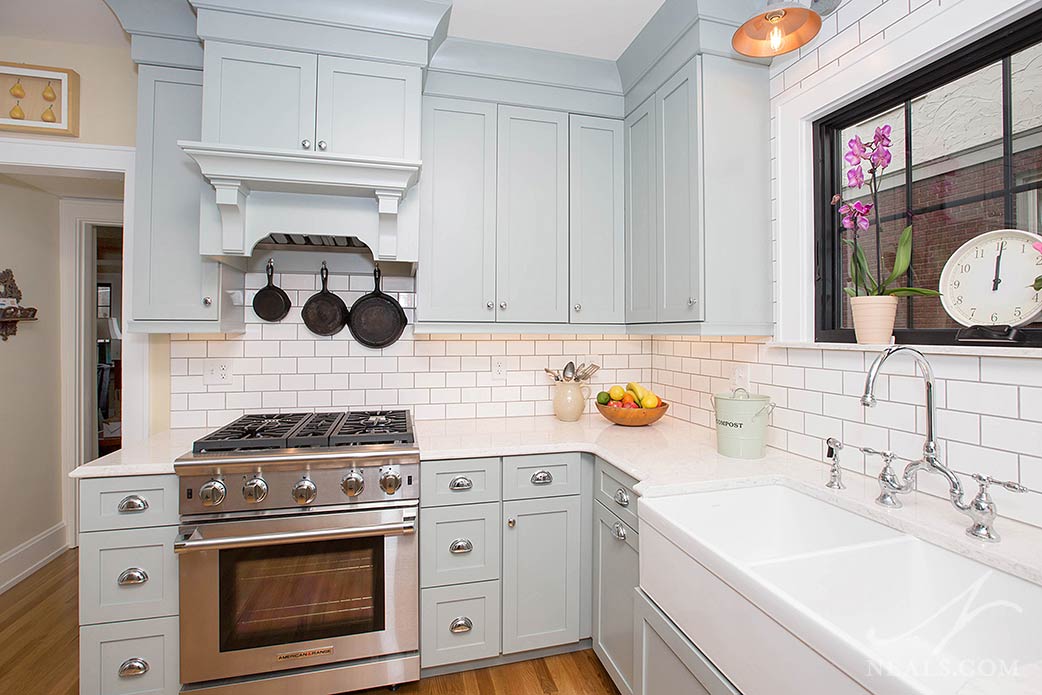
Stainless steel countertops are a staple in commercial kitchens, but they’ve also found a place in residential kitchens for their sleek, modern look. Stainless steel is incredibly durable, heat resistant, and easy to clean, making it a practical choice for avid cooks. It’s also non-porous, so it resists bacteria and stains. However, stainless steel can scratch and dent, and fingerprints and smudges are highly visible, which can be a drawback for some homeowners.
Solid surface countertops, such as those made from Corian, offer a seamless, non-porous surface that’s easy to clean and maintain. Solid surface materials are available in a wide range of colors and patterns, including designs that resemble natural stone. They are also repairable; scratches and minor damage can be sanded out. However, solid surfaces are not as heat resistant as stone, and they can be susceptible to scratches and dents. Despite these limitations, solid surface countertops provide a versatile and attractive option.
Recycled glass countertops are an eco-friendly option that adds a unique, colorful aesthetic to your kitchen. Made from crushed glass embedded in a resin or cement binder, these countertops are available in a wide variety of colors and patterns. They are durable, heat resistant, and relatively low maintenance. However, recycled glass countertops can be expensive, and the surface can be prone to chipping and cracking. Their unique appearance and environmental benefits make them a popular choice for those looking to make a statement while being mindful of sustainability.
Soapstone countertops offer a soft, matte finish and a smooth, soap-like feel. This natural stone is heat resistant, non-porous, and resistant to stains and bacteria, making it a practical choice for kitchens. Soapstone’s color ranges from light gray to deep charcoal, and it can develop a beautiful patina over time. However, soapstone is softer than other stones and can scratch and dent more easily. It also requires regular oiling to maintain its appearance, but many homeowners appreciate its unique, aged look and natural charm.

Tile countertops offer a customizable and versatile option for your kitchen. Available in a wide range of materials, colors, and patterns, tile can create a unique and personalized look. Ceramic and porcelain tiles are durable and heat resistant, but grout lines can stain and require regular cleaning. Natural stone tiles, such as granite or marble, offer a more luxurious look but come with the same maintenance considerations as their slab counterparts. Tile countertops can also be a more affordable way to achieve a high-end look.
Paper composite countertops are a sustainable and innovative option made from recycled paper and resin. These countertops are durable, heat resistant, and have a warm, natural look that can resemble wood or stone. They are also relatively easy to maintain and can be sanded down and refinished if damaged. However, paper composite countertops can be expensive and are not as widely available as other materials. Their eco-friendly credentials and unique appearance make them an attractive choice for environmentally conscious homeowners.
Copper countertops provide a unique, warm aesthetic that changes over time as the metal develops a natural patina. Copper is naturally antimicrobial and heat resistant, making it a practical choice for kitchens. However, it is a soft metal that can dent and scratch easily, and its appearance can change unpredictably due to its reactive nature. Despite these drawbacks, many homeowners are drawn to copper’s distinctive look and the character it adds to a kitchen.
Lastly, consider using a mix of different materials for your countertops. Combining materials, such as a granite island with butcher block perimeter countertops, can add visual interest and functionality to your kitchen. This approach allows you to take advantage of the benefits of multiple materials and create a customized look that suits your style and cooking habits. For instance, you might use a heat-resistant material near your stove and a more decorative material elsewhere.
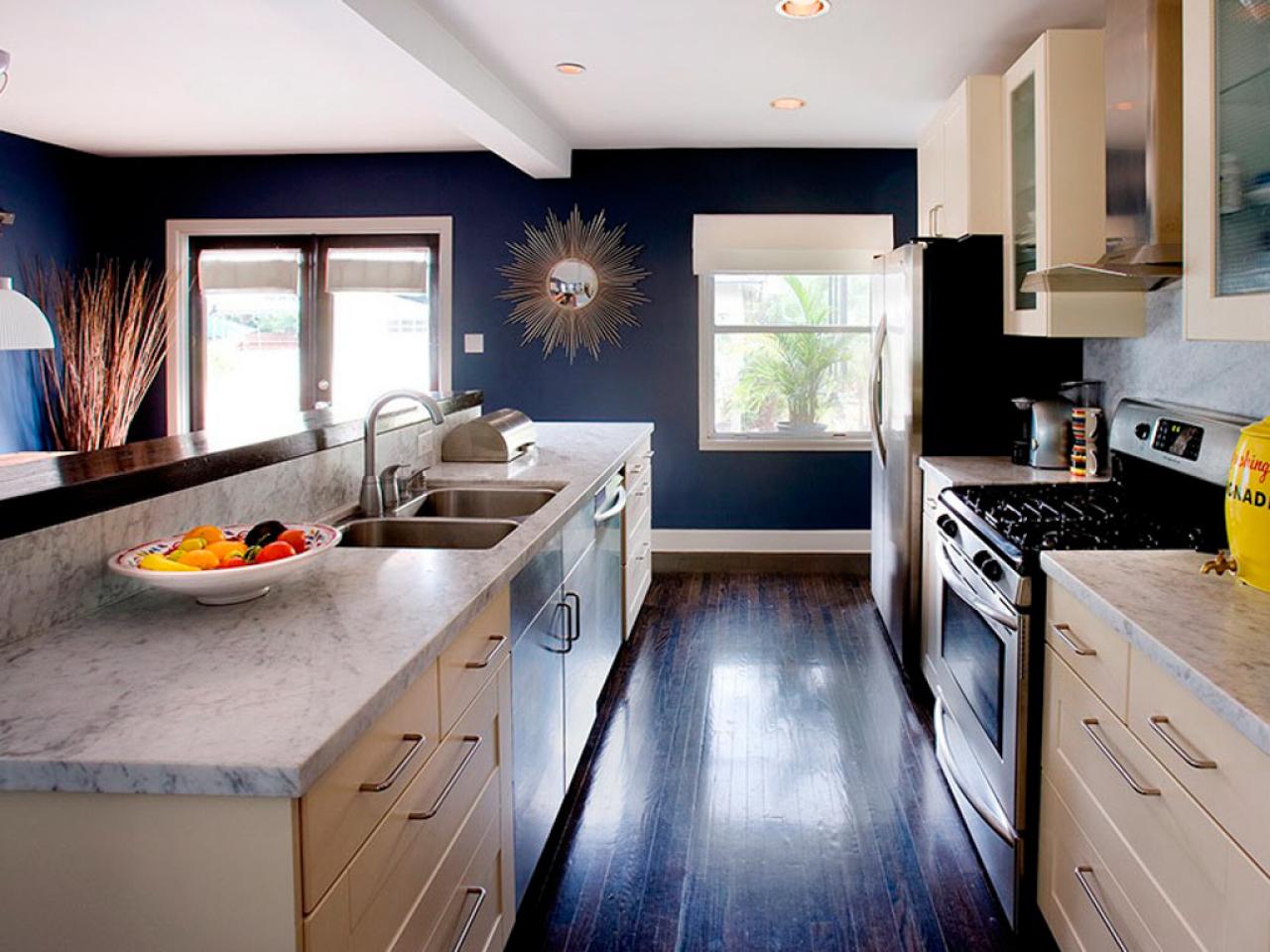
Common Mistakes to Avoid
When renovating kitchen countertops, there are several common mistakes to avoid to ensure a successful outcome. First, failing to set a realistic budget can lead to overspending or choosing lower-quality materials. It’s essential to plan your budget carefully and factor in all costs, including installation and maintenance.
Another common mistake is neglecting to consider the overall kitchen design. Your countertops should complement the existing cabinetry, flooring, and backsplash. Choosing a material or color that clashes with the rest of your kitchen can result in a disjointed and unappealing look.
Not paying attention to the durability and maintenance requirements of different materials can also lead to issues. While some materials like granite and quartz are durable and low maintenance, others like marble and wood require more care. Ensure you choose a material that fits your lifestyle and willingness to maintain it.
Improper installation is another critical mistake. Even the best materials can look and perform poorly if not installed correctly. Hiring a reputable and experienced professional for the installation is crucial to achieving a high-quality finish.
Finally, overlooking functionality can be a major pitfall. While aesthetics are important, your countertops should also meet your functional needs. Consider how you use your kitchen and choose a material that supports your cooking habits and lifestyle.

What is the best material for kitchen countertops?
The best material for kitchen countertops depends on your preferences, budget, and lifestyle. Granite and quartz are popular for their durability and low maintenance, while marble offers a luxurious look. Laminate and tile are more budget-friendly options, and butcher block provides a warm, rustic charm. Consider your priorities and needs to determine the best material for you.
How much does it cost to renovate kitchen countertops?
The cost of renovating kitchen countertops varies widely based on the material and scope of the project. Laminate countertops can be as low as $20 per square foot, while high-end materials like granite and marble can exceed $100 per square foot. Installation costs also vary, so it’s essential to get multiple quotes and factor in all expenses.
How do I maintain my new countertops?
Maintenance requirements vary depending on the material. Granite and quartz are relatively low maintenance, requiring regular cleaning with mild soap and water and occasional sealing for granite. Marble needs more care to prevent staining and scratching. Wood countertops require regular oiling, while stainless steel needs frequent cleaning to remove fingerprints and smudges. Always follow the manufacturer’s care instructions.
Can I install new countertops myself?
While some homeowners may be able to install countertops themselves, especially with materials like laminate or tile, it’s generally recommended to hire a professional for most installations. Proper installation is crucial for the durability and appearance of your countertops. Professionals have the tools and experience to handle complex materials like granite, quartz, and concrete.
How do I choose the right countertop color?
Choosing the right countertop color involves considering the overall color scheme of your kitchen, including cabinets, flooring, and backsplash. Neutral colors like white, beige, and gray are versatile and timeless, while bold colors can make a statement. It’s also helpful to bring samples home and see how they look in your kitchen’s lighting before making a final decision.

Dramatic Kitchen Makeover for $2,500 or Less
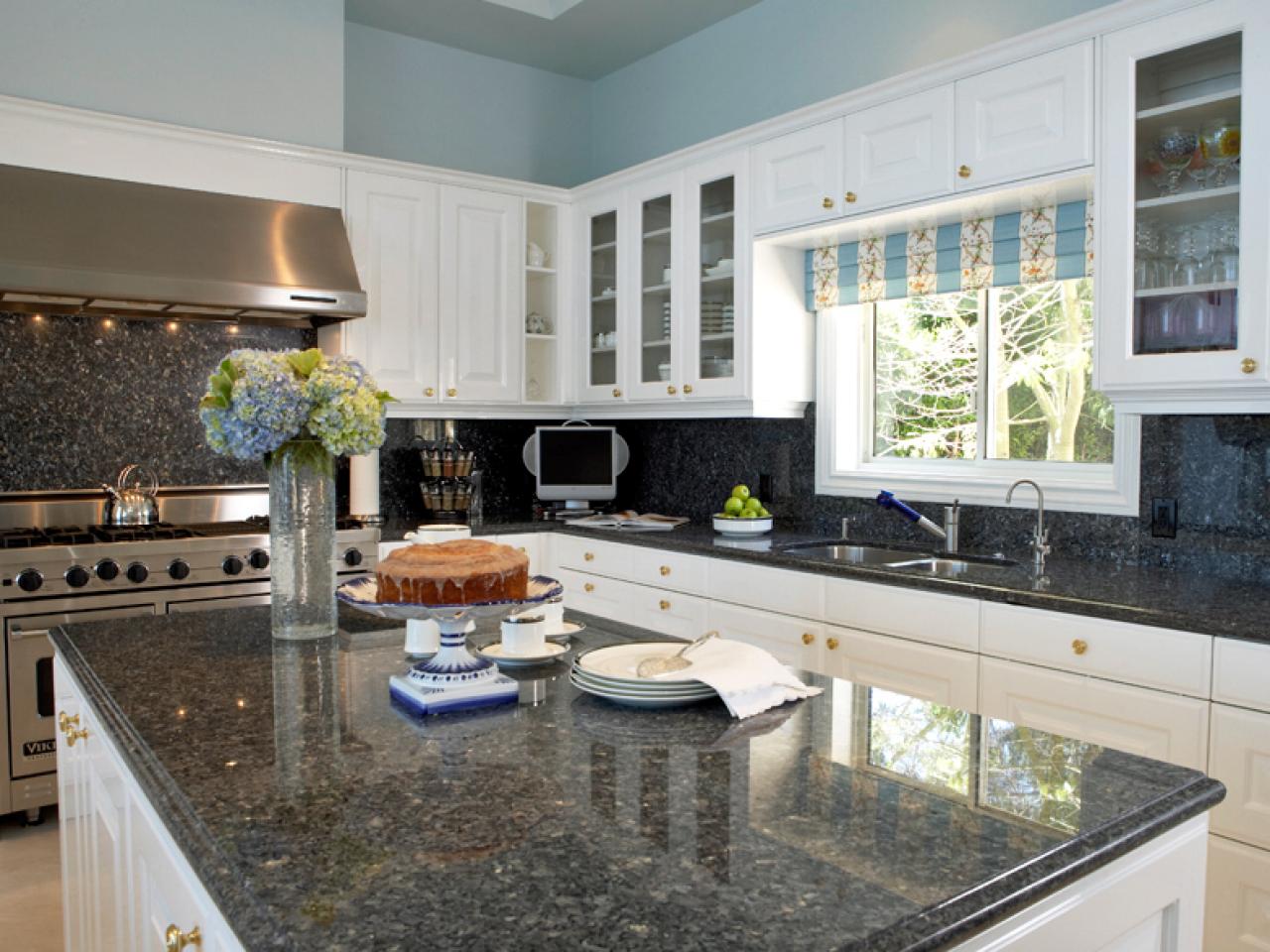
Beginner’s Guide: DIY Kitchen Remodel on a Budget
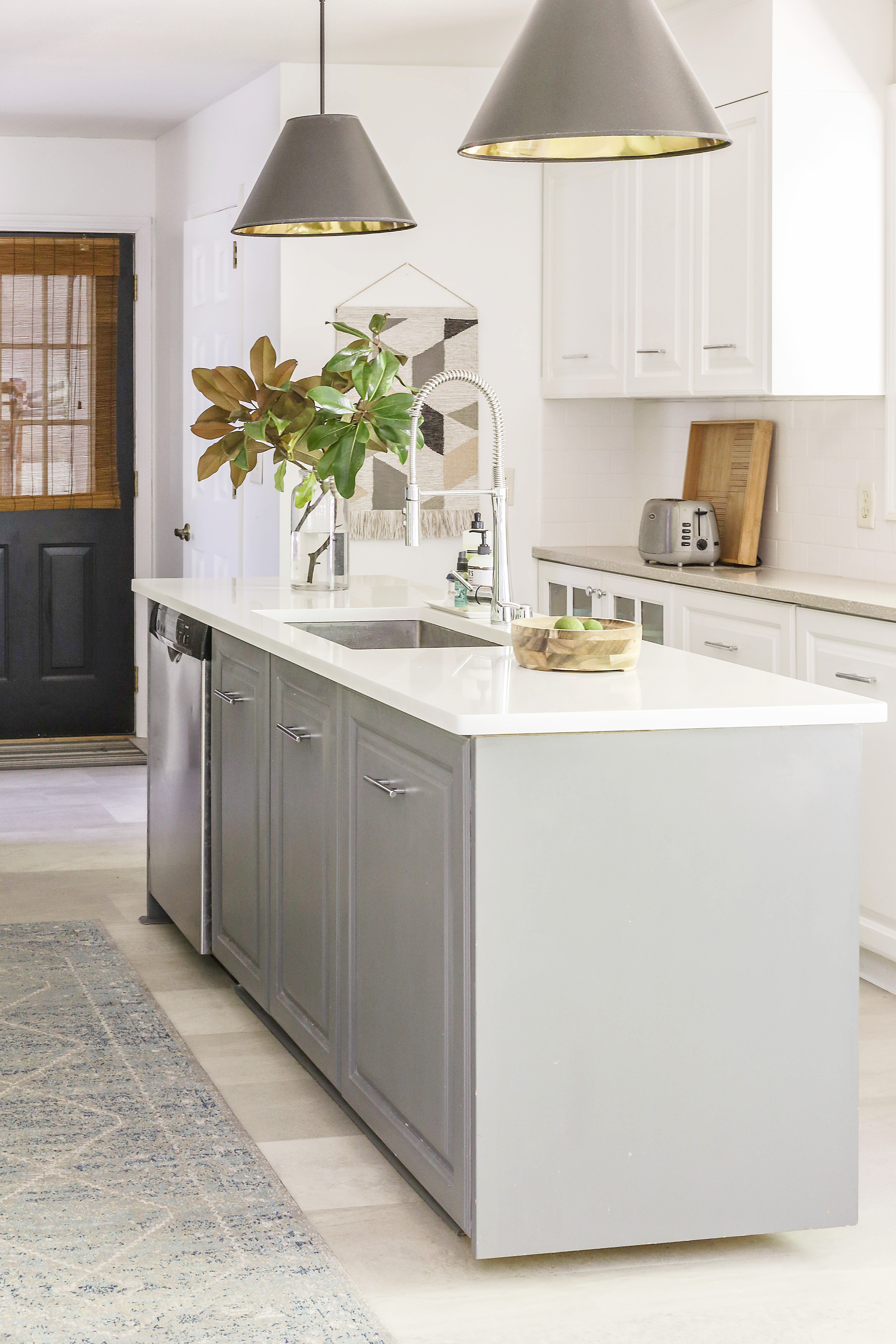
Cost-Cutting Kitchen Remodeling Ideas DIY
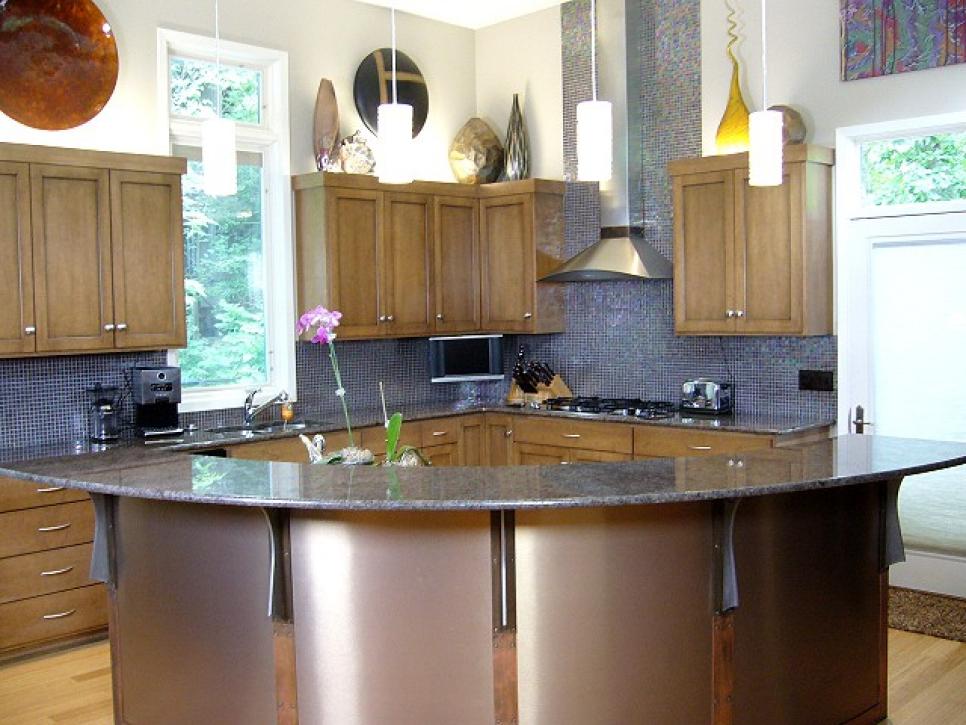
Related articles: